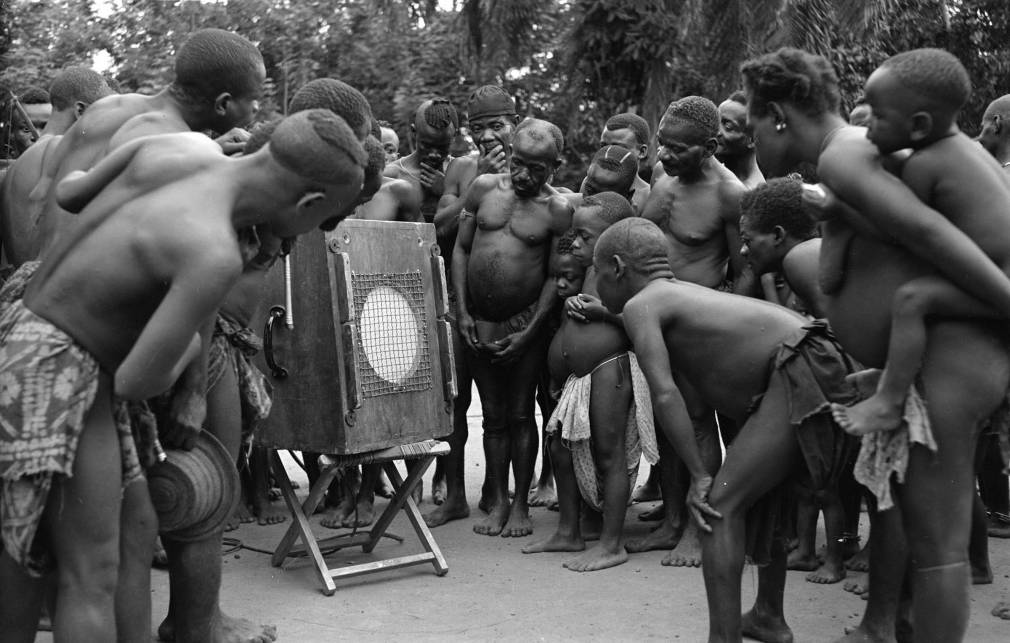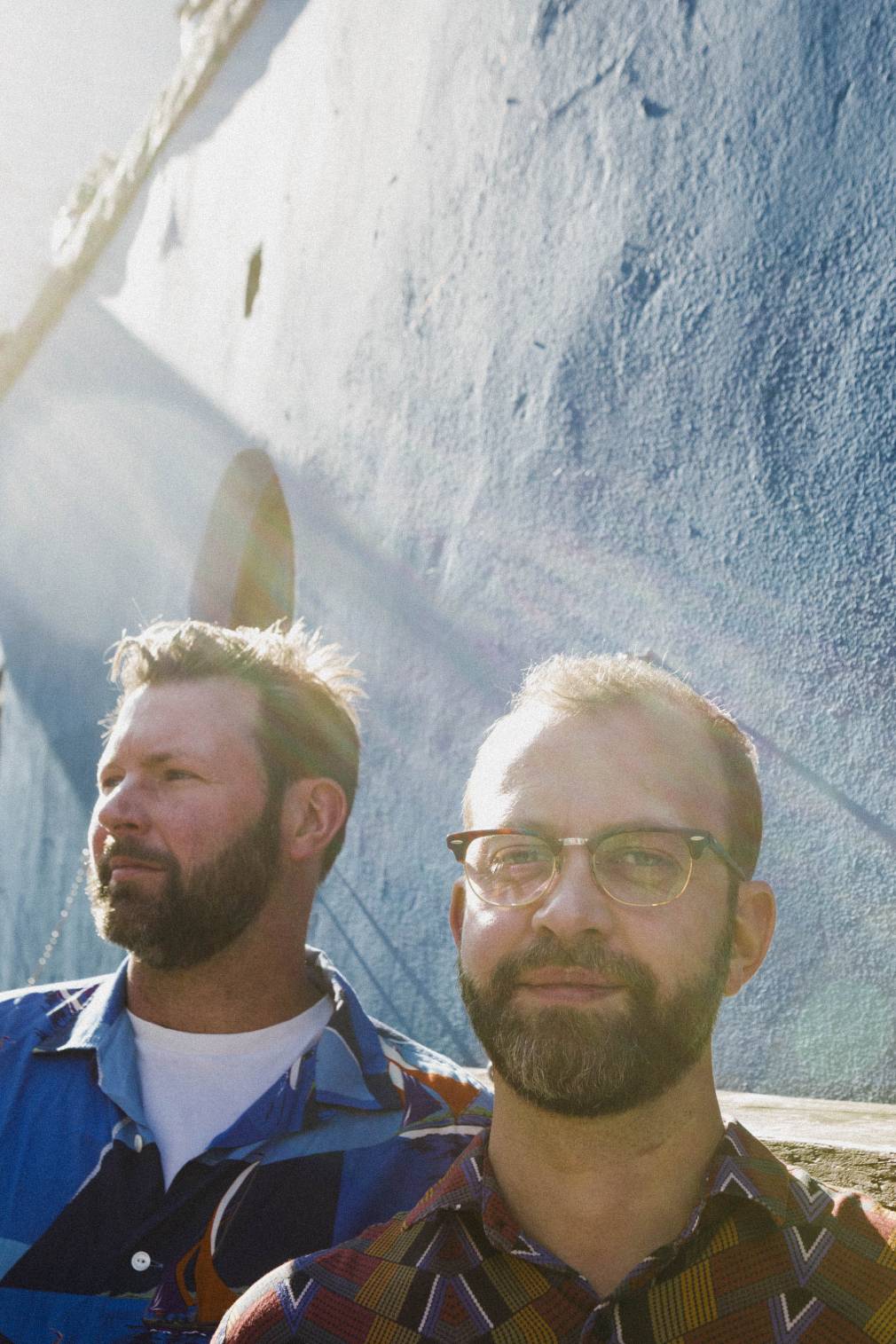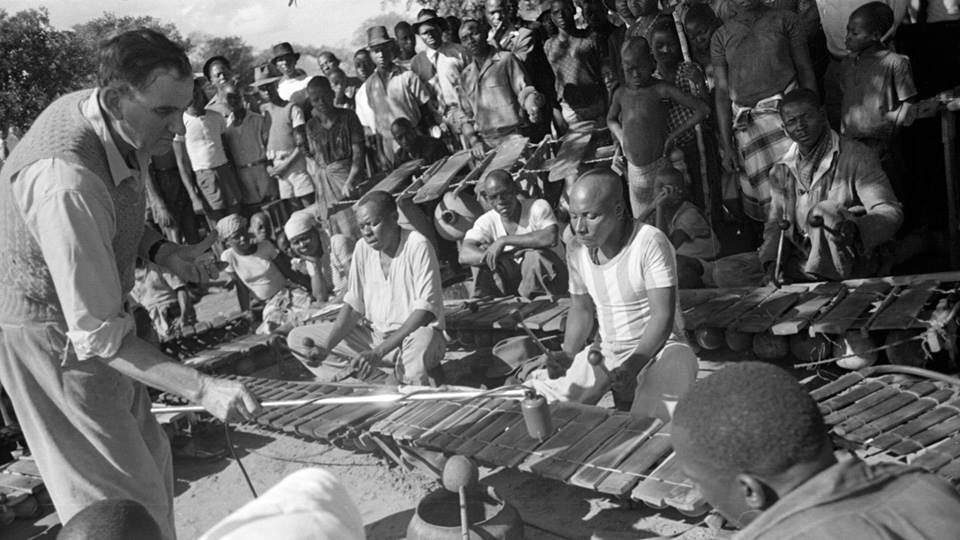Tracey accumulated 35,000 recordings from the 1920s to the 1970s which were recorded in 18 different countries and across 250 ethnic groups. Chris Pedley and Oliver Moira helped local contemporary producers tap into this incredible material and gave them an opportunity to develop it in their own musical culture. Aside from the label’s various compilations (Afrobass, Afrodeep, Afrochill, Malawi, South Africa) Beating Heart Records was also a driving force behind the band Saronde whose successful tune, “Kilamu” featuring Blinky Bill and Idd Aziz, is based on a sample of a recording in Mijikenda (a Kenyan coastal dialect of the same name). We had a chat with Olly Wood about his mission to bridge the gap between African youth and their ancestors.
What’s your relation to the African continent?
I’ve been spending a lot of time in Africa since 2013, initially in Malawi working on a school building project. I’ve travelled around South Africa, Tanzania and Uganda and I now live in Nairobi, Kenya.
How did you first discover African music?
I met my label partner, Chris Pedley in Malawi in 2015 and he told me the fantastic story of his wife’s great uncle Hugh Tracey, who made 35,000 recordings of traditional African music in 18 sub-Saharan countries between 1920 and 1970. Hugh founded the International Library of African Music (ILAM) to house the collection, which is now owned by Rhodes University in Grahamstown, SA.
Why did you choose this music out of all others?
I’ve always followed my ears, trusting any music that creates a physical response in my body. Working with music from the continent has gone hand in hand with my exploration of it. I find the sounds fresh and exciting plus dancing is a way of life in many places here.
How did the project get started?
When Chris introduced me to Hugh Tracey and the International Library of African Music, it seemed crazy that the archives were only really known in academic circles. We came up with the idea to invite contemporary producers from Africa and around the world to explore, sample and remix the archives and breathe new life into it. ILAM loved the idea as it was a way to introduce the music to today’s audiences.

Can you tell me about your slogan “connecting the past to the present to the future”?
The majority of the music we release on the label fuses samples of field recordings from the 1950s with contemporary genres. We’re drawing a thread between the past and the present and making something new for the future. The ancestors are now in the dance with us.
What spawned the idea of mixing traditional and modern sounds?
It seemed like an obvious thing to do, since the creation of the sampler, music – hip-hop and dance music in particular, has always sampled recordings from the past, breathing new life into them, recycling them and hopefully making something fresh and exciting in the process.
How does one move past the weight of tradition to create something new without fearing desecration?
We must remain respectful of course, we pay royalties to the ILAM archive who desperately need the additional funds to continue doing the important work of documenting and archiving African music and culture that would otherwise be lost forever. But being fearful would mean that nothing new happens, cultures have always passed influences back and forth between each other, it’s part of what makes the diversity on this planet so exciting.
What artists have you worked with so far?
So far we have worked with Blinky Bill (Kenya), Angelique Kidjo, Saronde, Floyd Lavine (SA), Faith Mussa (Malawi), Goldie, The Busy Twist, Faizal Mostrixx (Uganda), Auntie Flo, Nabihah Iqbal, Ibibio Sound Machine, Muzi, Luke Vibert, Rudimental, Pablo Nouvelle, Clap! Clap! My Nu Leng and many more.
Are there other groups with a similar mission or purpose?
Yes in Kenya for example there’s a great crew of producers called Midi Minds who are recording traditional music from the north of the country and fusing it to make wonderful dance music. I think the record label Sterns has also opened up their back catalogue to be remixed.
What makes electronic music work so well with archives and traditional music?
The loop aspect of dance gels very well with the call and response and repetitive motifs you find in a lot of African music, alongside the syncopated polyrhythmic percussion that is designed to move and free the body, inducing trance like, ecstatic, liberated states on the dance floor.
What’s the response to your work in Africa?
A lot of the artists we work with are grateful for the opportunity to increase their exposure in markets that they have very few chances of penetrating otherwise. A lot have also told us they had no idea the ILAM archive existed. Here’s a quote from Faizal Mostrixx (Uganda):
“As an African producer, so many young people are looking for a reconnection back to their roots, a connection that can blend with the way we operate as Africans in today’s modern society… so being given a chance to access the archive, it brings me back to the drawing board, it brings me back to the part that I feel more connected to and the voices in the recordings are giving me a chance to re-own and start to question the world I’m living in today. Being part of Beating Heart is giving me a chance to see more, to see beyond music and to see beyond life. It’s an amazing opportunity.”
Was there ever a concern that, not being African, you were using a heritage that wasn’t “yours”?
We thought there was the potential for that, of course you can’t please everyone, but we haven’t experienced any bad feedback so far, I think people can tell our intentions are good. Hugh Tracey devoted his whole life to showing the beauty and complexity of African music to Africans and the whole world and in some sense we are continuing his work after a 50 year pause. More importantly, artists have always needed platforms to promote themselves, and if you get the team right, teamwork can make the dream work.
What’s next? Do you have any other projects in mind?
We’re currently working on a Saronde album that will have some great features on it, and Batida is exploring his heritage in the Angolan section of the archive, which I’m greatly looking forward to hearing the results of. We also have great new music from Raz & Afla, a Ghanain / Isreali musical collaboration based out of London.





